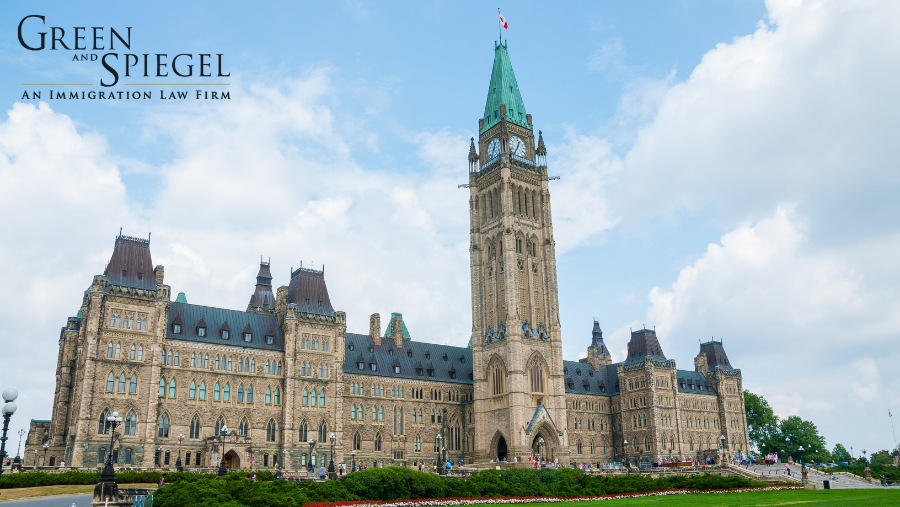As athletes from around the world compete against each other in the Olympics, questions often arise about who is competing on various teams. According to s. 41(1) of the Olympic Charter, in order to represent a country in the Olympic Games, the competitor must be a national of said country.[1] There have been numerous discussions in the media regarding the citizenship of various competitors, specifically dual citizens who have made a choice with respect to who they are representing. According to the By-Law Rule dealing with the nationality of competitors, competitors who are nationals of numerous countries or who become a national of another country may only represent their new/other country if 3 years have lapsed since they last represented another country.[2]
If you have the skills, how can you represent Canada on the podium at the next Olympics? In Canada, you are either a Canadian citizen by virtue of your birth, either in Canada or by descent, or because you have become a naturalized Canadian citizen.
Born Canadian
There are two ways in which people are born Canadians:
(1) They are born in Canada and are not the children of diplomats or other international officials;
(2) They are born to a Canadian parent abroad and are the first generation born abroad. In simpler terms, although they were born outside of Canada, their Canadian parent was born in Canada or became a naturalized Canadian citizen before their birth. The next generation abroad would not benefit from Canadian citizenship.
Canadian citizens who are born in Canada can easily prove their citizenship with a birth certificate and can apply for a passport. Canadian citizens born abroad will need to obtain a Proof of Citizenship certificate to demonstrate that they are in fact citizens and to be able to apply for a passport.
This means, for example, that an athlete who is born abroad to a Canadian-born parent could likely obtain documentation to prove that they are a Canadian citizen. They may never have realized that they are in fact, a Canadian citizen and have lived their life elsewhere, but obtaining the documentation to prove one’s Canadian citizenship could potentially open the door to competing under the Canadian flag.
Otherwise, one must formally apply for citizenship.
Becoming a Naturalized Canadian – Citizenship Criteria
Generally speaking, one must meet specific criteria, including the following, in order to be granted citizenship:
- They are a permanent resident
- They have spent 1095 days in Canada in the last 5 years
- They have filed tax returns for 3 years in the last 5 years
- If they are between the ages of 18-54, they have demonstrated proficiency in English or French
- If they are between the ages of 18-54, they have knowledge of Canada
- They meet other requirements of the Citizenship Act[3], such as not being subject to a removal order
Permanent residents who were previously in Canada as temporary residents, for example, who were in Canada on a Work Permit, may count sometime in Canada prior to becoming a permanent resident toward the 1095 days.
Note that being married to a Canadian citizen does not create an entitlement to citizenship. A foreign national who is married to a Canadian citizen would first need to apply for permanent residence, become a permanent resident, and then meet the criteria above before being eligible to apply for citizenship.
The majority of individuals who are naturalized Canadian citizens have become citizens by meeting the criteria above. They have first become permanent residents and have spent considerable time in and have developed ties to Canada.
Canadian Citizenship – Special Circumstances
There are a variety of other scenarios covered by the Citizenship Act. For example, there are some exceptions to the usual requirements for minors. In special circumstances, some requirements can be waived on compassionate grounds, such as due to a disability. There are also provisions of the Citizenship Act that set out different requirements for adoptees and others.
Under very special circumstances, the Minister of Immigration, Refugees and Citizenship has the ability to grant citizenship in exceptional cases. This Minister can review these cases to remedy situations where the general requirements cannot be met, however, there are strong reasons to grant citizenship. Under section 5(4) of the Citizenship Act, “the Minister may, in his or her discretion, grant citizenship to any person to alleviate cases of statelessness or of special and unusual hardship or to reward services of an exceptional value to Canada.”
This section will not be considered for just any situation and the Government of Canada is clear that this category is not to be used to bypass the regular process:
Grants under this subsection are only used in very exceptional cases and each case is considered on its own merit. It is important that applicants appreciate the significance of being conferred a grant of citizenship under this provision and that it should not be used as a means of circumventing the normal citizenship process.[4]
This would allow, for example, the Minister to grant citizenship in the case of an athlete who is a permanent resident who does not meet the 1095-days in Canada. The individual would, however, have to demonstrate to the Minister that the level of their service to Canada is “exceptional.” As indicated above each application is assessed on its own merit, and there is, therefore, no “test” to demonstrate that someone is “exceptional.”
Conclusion
Many athletes dream of one day competing in the Olympics. While some may be able to choose who they represent, most athletes will not have this option available to them. They are a national of a particular country and will represent that country. While some may dream of donning Team Canada’s uniform as they march in the opening ceremonies or get ready to compete, the road to Canadian citizenship is a challenging but rewarding process.
If you are interested in discussing your pathway to Canadian citizenship, please contact our office.
[1] Olympic Charter, 1983. Lausanne, Comité International Olympique, 2021. Accessed at : https://stillmed.olympics.com/media/Document%20Library/OlympicOrg/General/EN-Olympic-Charter.pdf
[2] By-Law Rule to s. 41(1), Ibid.
[3] Citizenship Act, RSC., 1985, c. C-29.
[4] Immigration, Refugees and Citizenship Canada, Government of Canada. (2017) Citizenship: Ministerial discretion to grant citizenship in special cases (2017), Operational Instructions and Guidelines. Accessed at: https://www.canada.ca/en/immigration-refugees-citizenship/corporate/publications-manuals/operational-bulletins-manuals/canadian-citizenship/grant/ministerial-discretion-grant-special-cases.html





